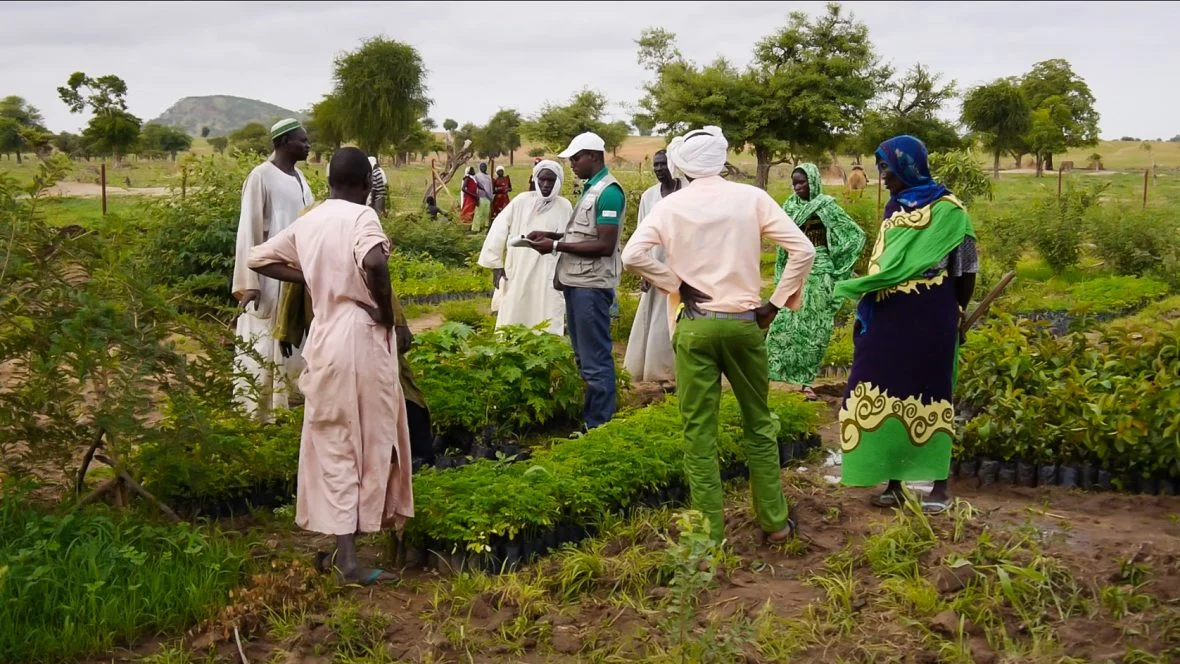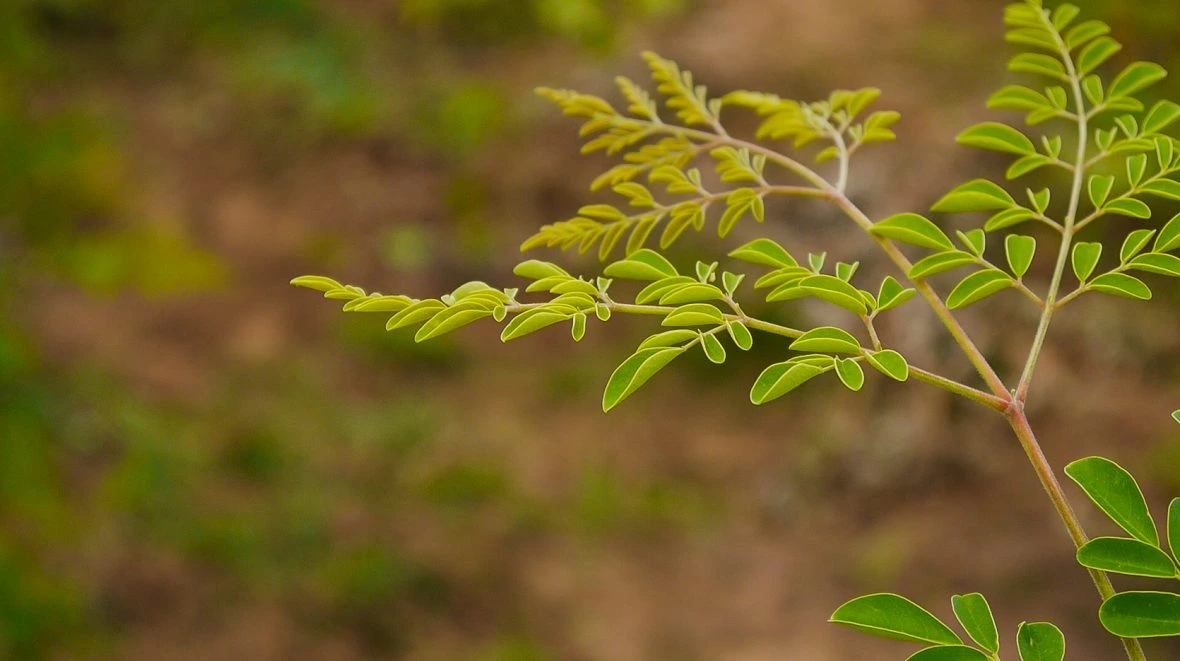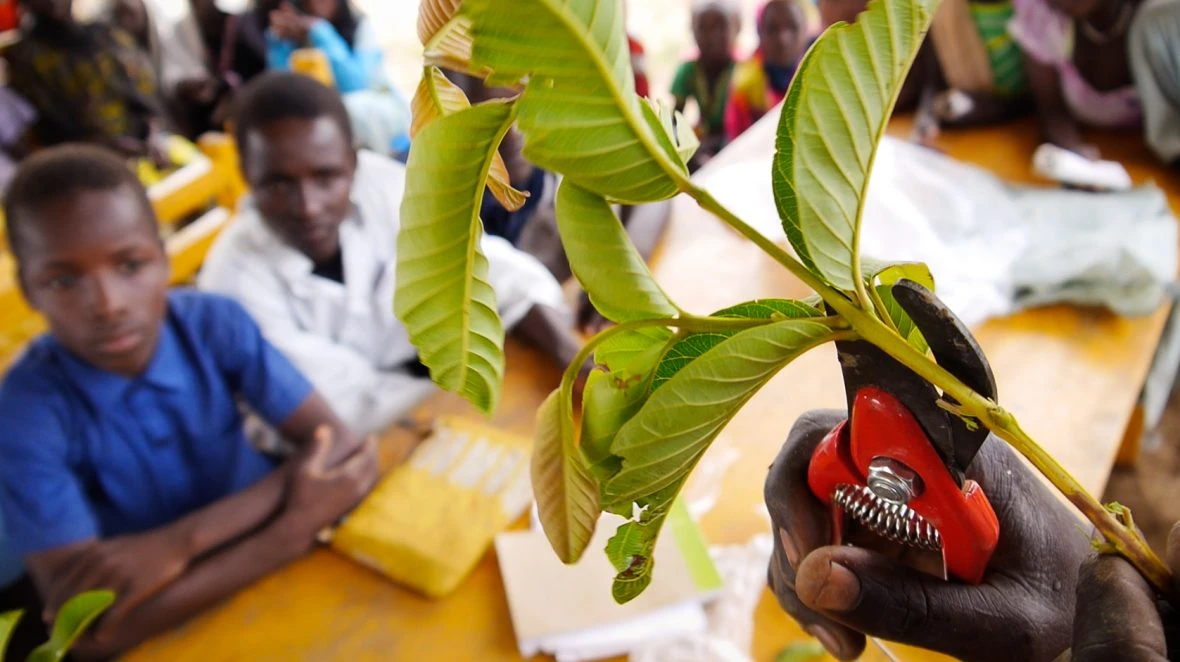Where We Work
Chad
Our community-led response in Chad increases access to healthcare, adapting to climate change, and supporting displaced Chadians as well as international refugees.
Read More"A nation that destroys its soils, destroys itself." US President Franklin D Roosevelt was speaking from bitter experience, as the great dustbowl raged across millions of acres of the American Midwest in the 1930's, causing economic disaster and immense human misery. FDR's response was to put in place a massive soil conservation program and to plant 200 million trees. Today, across the "Drylands" of Africa, we're echoing that response... on a somewhat smaller scale.

Abakar Hassab is crazy about trees. His voice rises an octave or two and there's an almost evangelical caste to his face as he addresses a group of local farmers on the outskirts of Djedidé village. This place lies right in the middle of what's known as the African drylands — where temperature is high and rainfall is low. Not ideal for farming, but it's what they've got.
"The people here have been extending their agricultural land use over the years, and this has had a significant negative effect on the environment," according to Abakar. "We want to help them reverse that."
Basically, people have been chopping down trees to grow crops. And that's bad news for pretty much everyone.
All around us, with Concern's encouragement, smallholders are taking up the practices of conservation agriculture. It's a way of farming (originally developed in the USA) that uses simple techniques to preserve the soil and increase yields.
But for Abakar, it's all about the trees.

We're standing in one of the 7 nurseries established in Sila region to help push the arboreal agenda. There's a rural resource center here too, where local people (kids included) learn about the importance of trees to the protection of the agricultural landscape - and their potential for actual crop production.
The project is a partnership with Tufts University in Massachusetts and the World Agroforestry Center, headquartered in Kenya.
"The choice of tree was dictated by the needs of the local community."
"The plants produced in the nursery are in particular local fruit species like mango, guava, and lemon," according to Abakar. "We also have Moringa, Balamitesse (a local fruit species), Papaya, and Dakassayea. The choice of tree was dictated by the needs of the local community."

Moringa is an especially special tree. Studies show that consumption of the bark, pods, leaves, nuts, seeds, tubers, roots, and flowers may lead to reductions in blood sugar and cholesterol. It may also have antioxidant and anti-inflammatory effects and is highly nutritious, working wonders for kids struggling with malnutrition.
The benefits of planting trees in an area like this are multiple. Their roots help to anchor the soil, leaves provide shade (and fertilizer when then fall,) and fruits provide both food and a potential source of income. What's not to love?

Back at the resource center a class is underway in the art of grafting, and outside there's a flurry of activity around the communal beds used for the cultivation of saplings. When ready, they'll be transplanted throughout the local landscape — bringing all of their special properties to bear on a community that often lives life on the edge.
"Our desire is that in the next 20 years, this environment... will be transformed"
In one rather creative innovation, Abakar has even persuaded 48 local families to plant fruit trees in discarded pit latrines. Endless supplies of fertilizer and a future supply of food!
The benefits of planting trees in an area like this are multiple. Their roots help to anchor the soil, leaves provide shade (and fertilizer when then fall,) and fruits provide both food and a potential source of income. What's not to love?
Back at the resource center a class is underway in the art of grafting, and outside there's a flurry of activity around the communal beds used for the cultivation of saplings. When ready, they'll be transplanted throughout the local landscape — bringing all of their special properties to bear on a community that often lives life on the edge.
"Our desire is that in the next 20 years, this environment... will be transformed"
In one rather creative innovation, Abakar has even persuaded 48 local families to plant fruit trees in discarded pit latrines. Endless supplies of fertilizer and a future supply of food!
Abakar and his team are on a mission of change. "Our desire is that in the next 20 years, this environment that has known so much deforestation, will be transformed to a greener, more resilient place."
Let's hear it for trees!